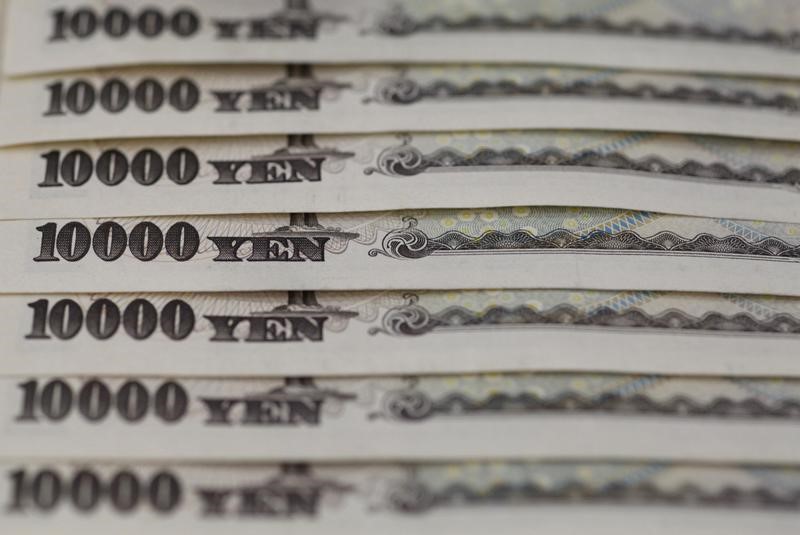* Yen up after Trump's comments about additional tariffs on China
* China yuan falls to five-month lows in offshore market
* Australian, Canadian dollars sink to one-year lows
* Euro under pressure, Sintra forum eyed for more ECB rate clues
By Tomo Uetake
TOKYO, June 19 (Reuters) - The dollar fell against the yen in early Asian trade on Tuesday after U.S. President Donald Trump's threats of more tariffs on China raised worries about an escalating trade war between the world's two largest economies.
The Japanese yen JPY= strengthened to 110.02 against the dollar, up as much as 0.47 percent on the day, after President Trump threatened to impose a 10 percent tariff on $200 billion of Chinese goods, fuelling trade war worries with Beijing.
The ongoing trade dispute between the United States and China knocked the yuan CNH=D3 to 6.4660 per dollar, its weakest in more than five months in the offshore market.
President Trump late on Monday threatened to impose a 10 percent tariff on $200 billion of Chinese goods, escalating a tit-for-tat trade war with Beijing.
In a statement, Trump said he had asked the U.S. trade representative to identify the Chinese products that would be subject to the new tariffs. He said the move would be in retaliation for China's decision to raise tariffs on $50 billion in U.S. goods. latest headlines from Trump are pushing investors to risk-off-mode," said Shintaro Ikeshima, chief manager of forex and financial products trading division at Mitsubishi UFJ Trust and Banking Corp.
"Although many think this might be another bluff from Trump, markets are likely to stay nervous to trade-related headlines for now."
The Australian dollar AUD= sank to a one-year low of A$ 0.7391 as the U.S.-China trade spat escalated and base metal prices slid.
The Canadian dollar CAD= weakened to a one-year low of C$ 1.3237 overnight, before paring some of its losses, as investors worried about Canada's trade feud with the United States. euro remained under pressure due to a dispute in Germany's governing coalition and expectations the European Central Bank will hold interest rates steady into 2019.
Chancellor Angela Merkel's Bavarian allies may defy her by implementing a plan to limit immigration at the German border and risk destabilising her three-month-old coalition. trade was generally subdued with focus turning to a three-day ECB forum in Sintra, Portugal, through Wednesday. ECB President Mario Draghi, chief economist Peter Praet and others will speak at the forum later on Tuesday.
